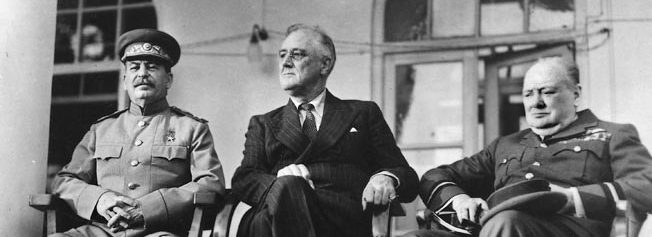
Soviet Union
The Big Three in Tehran: The Meeting That Shaped WWII
By Michael D. HullWorld War II made a disparate trio of allies —British Prime Minister Winston Churchill, Soviet Marshal Joseph Stalin, and American President Franklin D. Read more

Soviet Union
World War II made a disparate trio of allies —British Prime Minister Winston Churchill, Soviet Marshal Joseph Stalin, and American President Franklin D. Read more
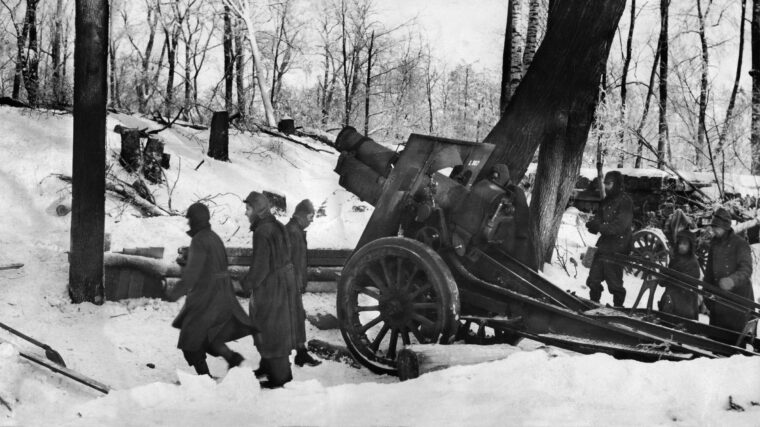
Soviet Union
The great city of Leningrad was being strangled, its people dying by the thousands.
Death came in many ways. Read more
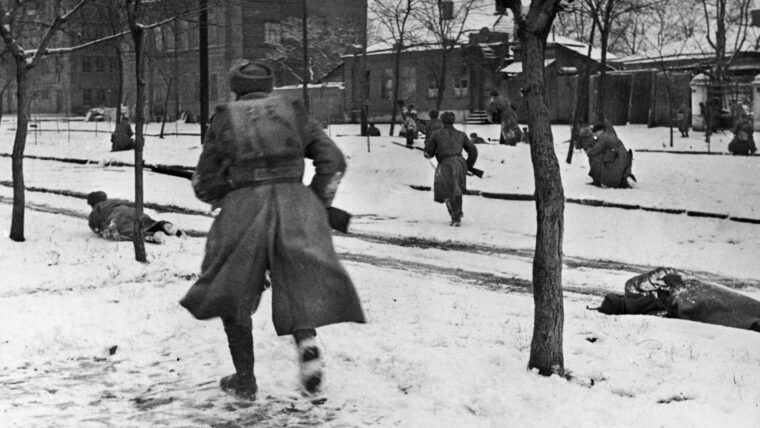
Soviet Union
Rostov was the key to the Caucasus and the rich Soviet oil fields that lay along the Black and Caspian Seas. Read more
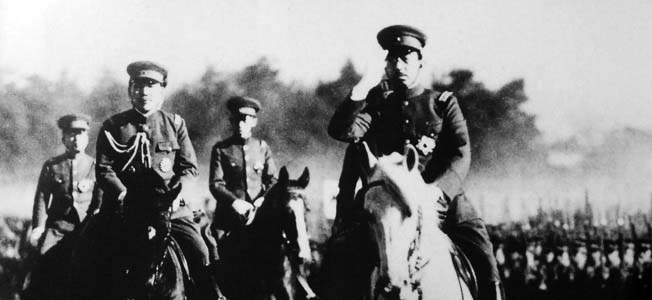
Soviet Union
He was the longest-reigning monarch and head of state in the 20th century, and the third-longest in history behind King Louis XIV of France (72 years) and England’s Queen Victoria (64 years). Read more
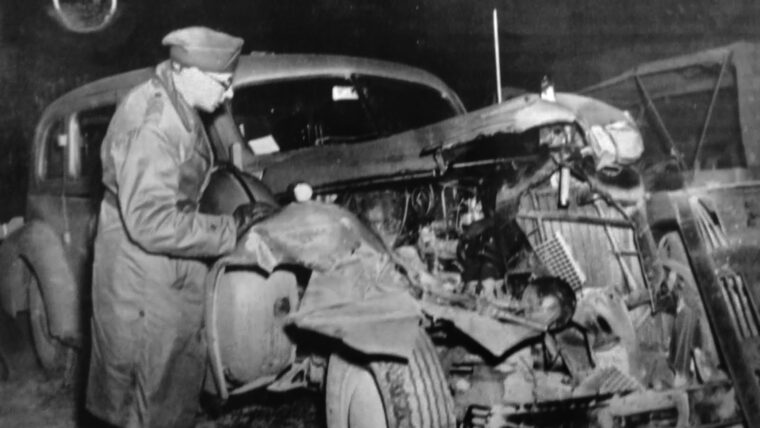
Soviet Union
When one thinks about the major conspiracy theories of the post-World War II era, one is drawn to the assassinations of President John F. Read more
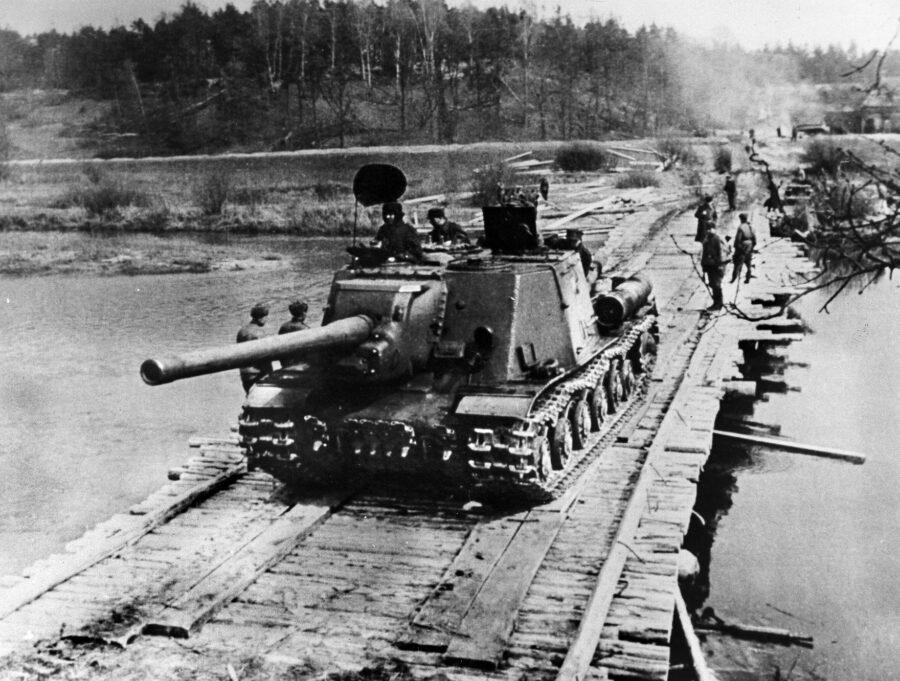
Soviet Union
The officers huddled in a candlelit cellar in an abandoned farmhouse midway between the Oder River and Berlin. Read more
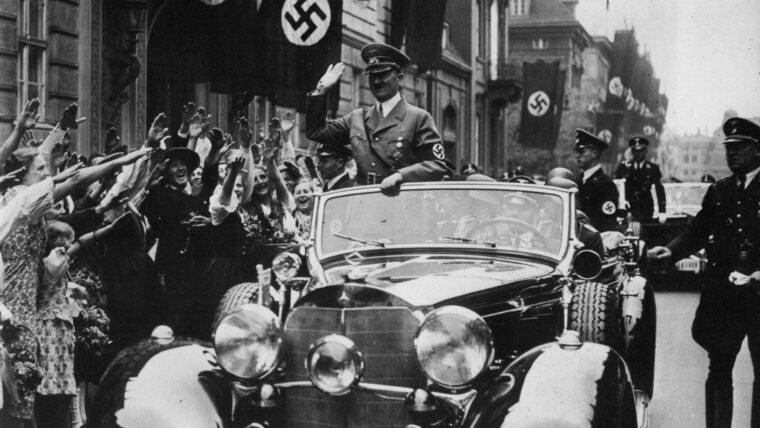
Soviet Union
Few would argue that Daimler-Benz is one of the most prominent and highly regarded motor vehicle manufacturers in automotive history. Read more
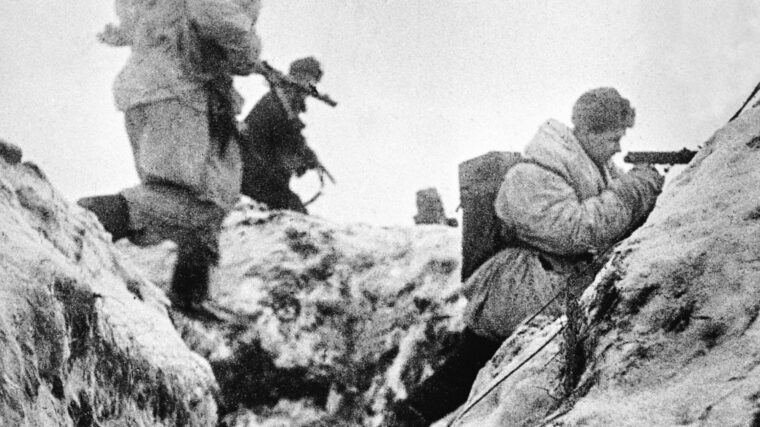
Soviet Union
With the German Sixth Army in its death throes at Stalingrad in January 1943, Stavka, the Soviet High Command, sought to capitalize on the disaster by unleashing massive offensives along the entire German-Soviet front. Read more
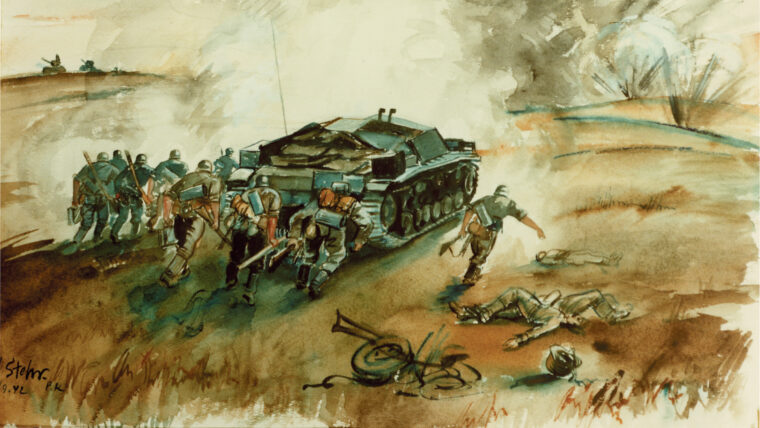
Soviet Union
During the winter of 1941, both the Red Army and the German Wehrmacht experienced a terrifying bloodletting. Adolf Hitler’s seemingly invincible armies, having advanced hundreds of miles inside the Soviet Union, were slowed by the October muddy season that had turned all but a few roads into almost impassible quagmires. Read more
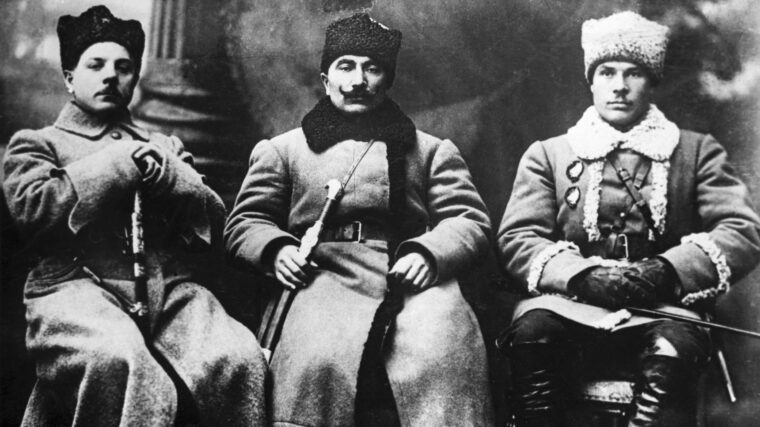
Soviet Union
In the summer of 1941, as the Nazi German blitzkrieg rolled over the Russian Red Army defenses at the embattled city of Leningrad, today once more St. Read more
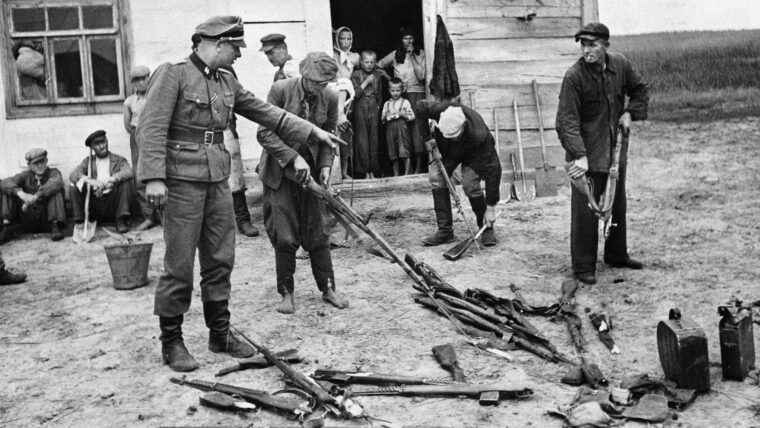
Soviet Union
The concept of Soviet partisans participating in Russia’s wars was nothing new in 1941. During Napoleon’s invasion of the country in 1812, small bands of civilians harassed the French and their allies both before and after the retreat from Moscow. Read more
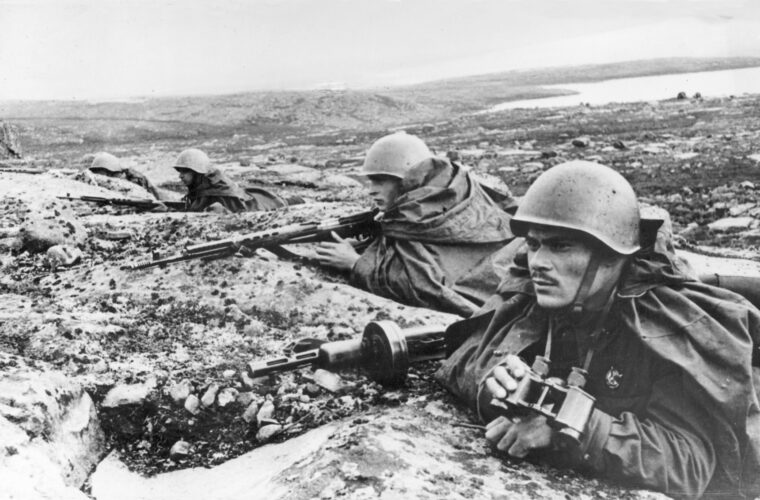
Soviet Union
The year 1943 began badly for the German Army on the Eastern Front. After a great struggle at Stalingrad, German Field Marshal Friedrich Paulus surrendered himself and his Sixth Army on January 31. Read more
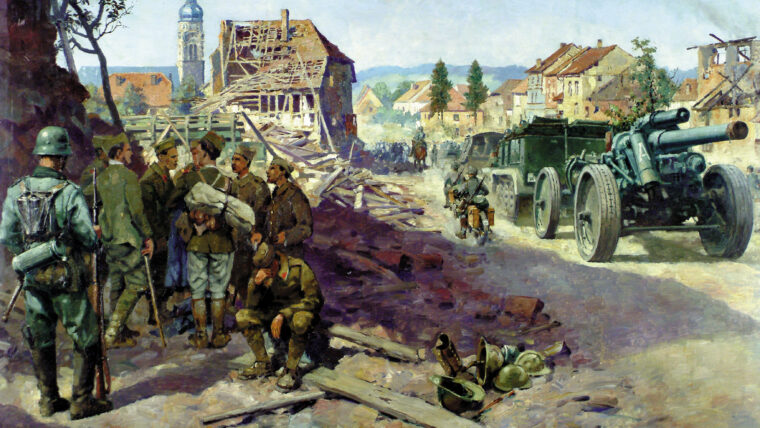
Soviet Union
Andrei Andreievich Vlasov, one of Soviet dictator Josef Stalin’s favorite generals, played a key role in saving Moscow from Adolf Hitler’s armies during the winter of 1941-1942. Read more
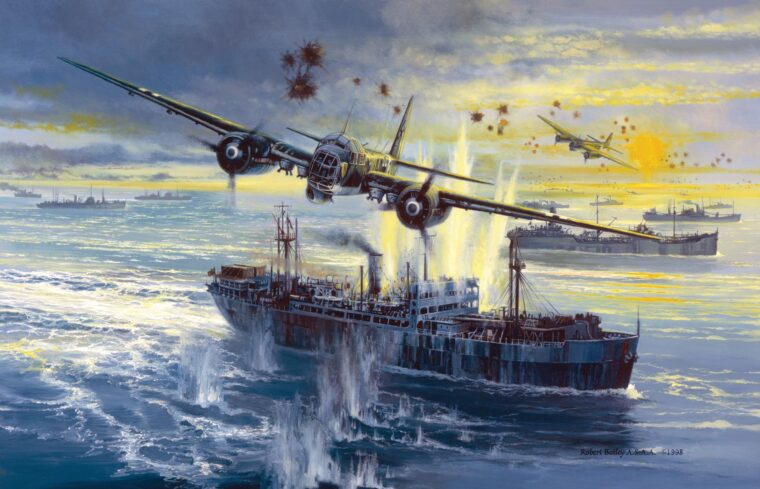
Soviet Union
British Prime Minister Winston Churchill had made the promise to Soviet Premier Josef Stalin, and Admiral Sir John Tovey of the Royal Navy had to keep it: to sail three convoys loaded with critical supplies from Britain to Russia every two months, with 25 to 35 ships in each convoy. Read more
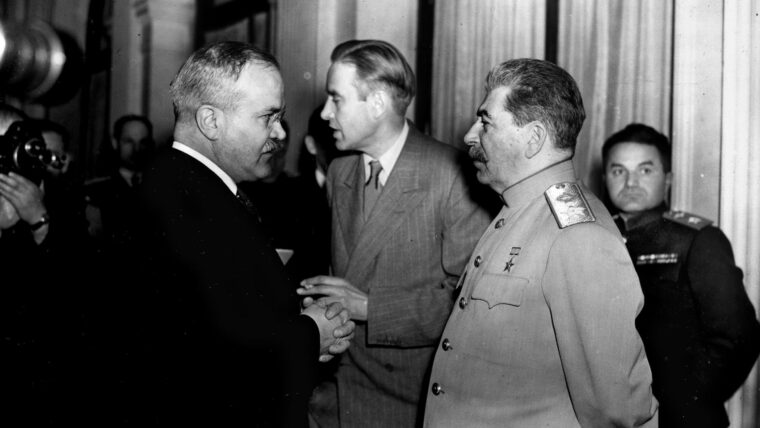
Soviet Union
The arrival of Vyacheslav M. Molotov, the People’s Commissar for Foreign Affairs of the Soviet Union, in Berlin on a rainy November 12, 1940, was a solemn, strained occasion. Read more
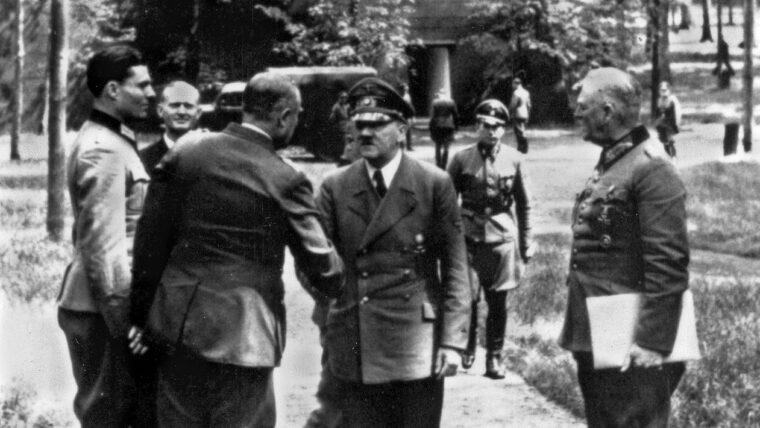
Soviet Union
At 12:40 PM on a hot, sultry July 20, 1944, German Führer and Reich Chancellor Adolf Hitler, 55, was seated on a wicker stool in a conference hut at his principal Eastern Front headquarters at Wolf’s Lair, Rastenburg, East Prussia, for the mid-day wartime map meeting. Read more
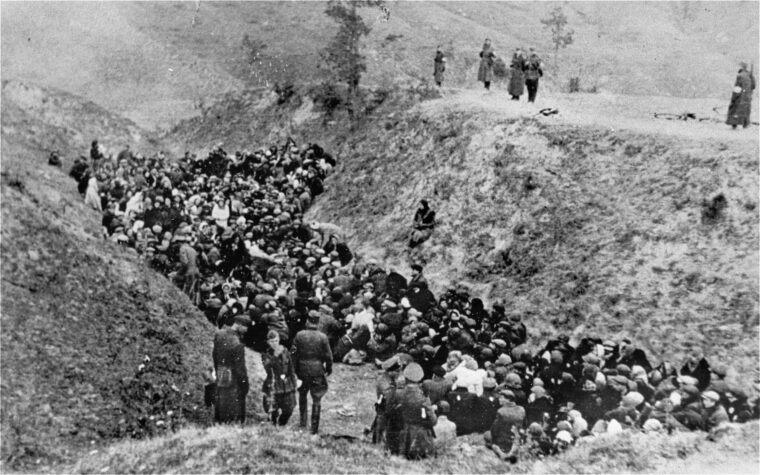
Soviet Union
To plead Superior Orders one must show an inexcusable ignorance of their illegality. The sailor who voluntarily ships on a pirate craft may not be heard to answer that he was ignorant of the probability that he would be called upon to help in the robbing and sinking of other vessels … a man who sails under the flag of skull and crossbones cannot say that he never expected to fire a cannon against a merchantman,” wrote Judge John L. Read more
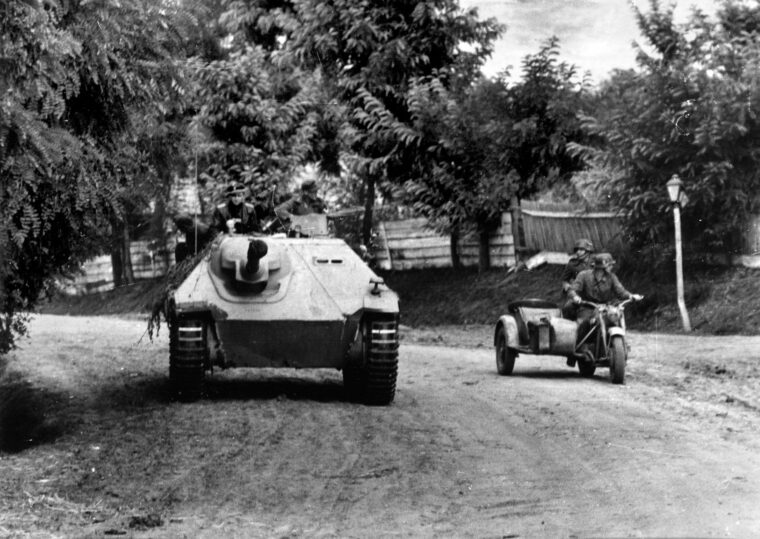
Soviet Union
By 1943 it was obvious to the Germans that their tank production could not keep pace with battlefield losses. Read more
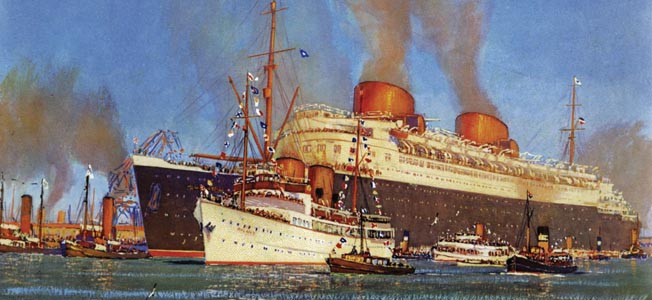
Soviet Union
After docking in New York on August 28, 1939, only four days before the outbreak of World War II, Captain Adolf Ahrens of Germany’s North German Lloyd shipping line was faced with a decision. Read more
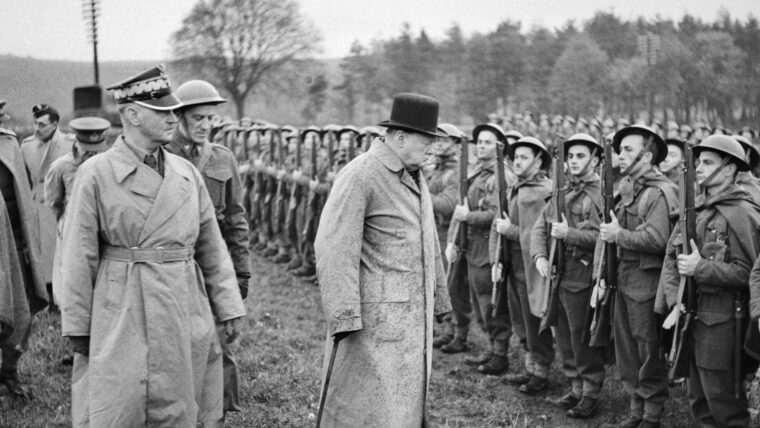
Soviet Union
Stanislaw Sosabowski started his military career in the anti-Hapsburg Polish underground movement in 1907, served in the Austrian Army in World War I, and rose to the command of the Polish Parachute Brigade in World War II. Read more